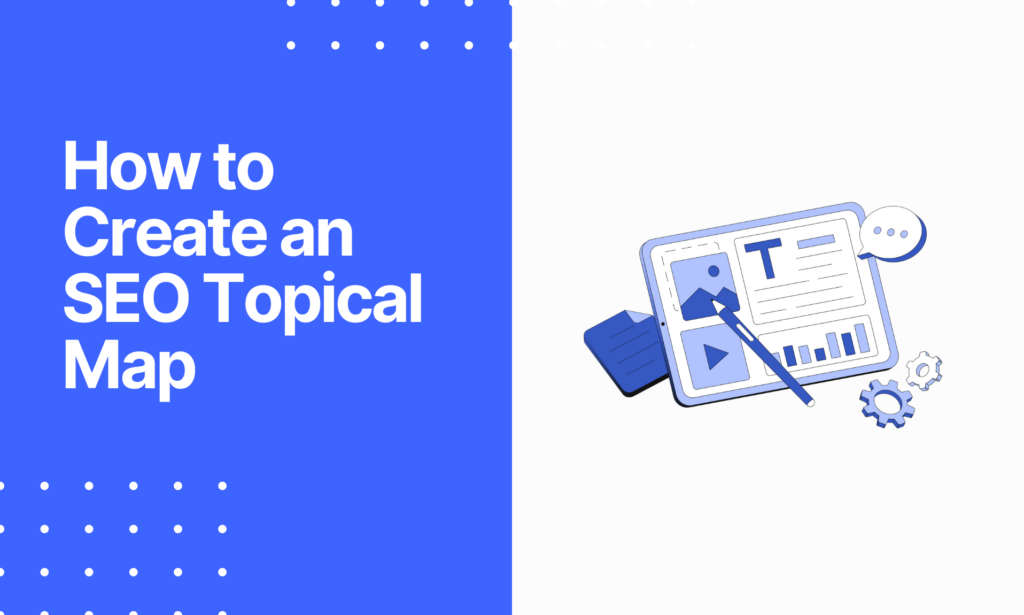To improve your Google search rankings immediately, start by enhancing technical SEO to ensure your site is fully optimized for speed and security. Focus on producing high-quality content that resonates with your audience, utilizing LSI keywords to target specific queries.
Build backlinks from reputable sources to establish domain authority and integrate meaningful visuals to captivate users, reducing bounce rates and encouraging more extended visits.
On-site SEO is the foundation for climbing the SERPs, and identifying the right keywords to target can make or break your strategy. Combine these efforts with a keen understanding of Google organic search trends and a commitment to regular audits and updates, and you set the stage for a significant leap in rankings.
Unveiling the Importance of Google Rankings
Securing a top rank on Google can transform your digital marketing strategy, driving traffic and increasing visibility. Businesses can tap into the power of content marketing by focusing on relevant content and leveraging SEO tools.
Pro tip: Always align your content with the keywords you want to target, ensuring that your efforts resonate with your intended audience.
The Enduring Value of a Top Position in Google Search Results
Achieving a top position in Google search results is crucial, as it boosts visibility and establishes credibility and trust with users. High rankings often increase traffic and can significantly impact your digital marketing ROI.
Staying ahead in the game means continually adapting to Google’s algorithm changes and maintaining a solid presence at the summit of search results.
How High Rankings Drive Business Success and Visibility
High rankings in Google organic searches directly correlate with business success and visibility. A solid technical SEO foundation reduces bounce rate while high-quality content captivates the audience.
Consistently employing LSI keywords and building backlinks will amplify your on-site SEO effectiveness. Remember to complement your text with meaningful visuals to enhance user engagement and retention.

Laying the Groundwork for Superior Google Rankings
To achieve superior rankings, you must understand your target audience using tools like Google Search Console. This insight allows for the development of a tailored SEO strategy that caters to your audience’s specific needs, ultimately aiding in ranking higher in Google.
Identifying and Understanding Your Target Audience
Understanding your target audience is a pivotal step in crafting a resonating SEO strategy. Using Google Search Console to gather data on user behavior and preferences, you can fine-tune your approach to meet their needs, which is instrumental in ranking higher in Google.
Setting the Stage With Technical SEO Essentials
Technical SEO lays the groundwork for a robust online presence. Prioritize mobile optimization to ensure your site is perfectly optimized for mobile devices.
Address technical issues that could hinder performance, utilize SEO plugins like Rank Math for streamlined optimization, and incorporate rich snippets to stand out in search results. Don’t forget the importance of browser caching for improved site speed and user experience.
Importance of Website Security and Speed
In the world of SEO marketing, website security and speed are non-negotiable. They protect users and signal to search engines that your site is trustworthy and efficient, directly influencing your rankings and user retention rates.
Enhancing User Experience and Mobile Friendliness
A seamless user experience and mobile friendliness are essential for satisfying users and search engines. A responsive design ensures that your site is accessible and provides an enjoyable experience across all devices, a critical factor for ranking favorably on Google.
Crafting Content That Speaks to the Algorithm and Audience
To drive organic traffic and succeed in the competitive world of SEO, one must craft a strategy that caters to “search intent” and aligns with Google’s algorithm. Utilize a beginner’s guide to understand the nuances of SEO, optimize content to rank for the keyword that best matches search intent, and analyze performance with Google Analytics to improve conversion rates.
The Power of Long-Form, Quality Content
Long-form content is a proven strategy for ranking high on Google. It provides comprehensive information that satisfies user queries, which can lead to more time spent on landing pages. A pro tip is to ensure that your long-form content is informative and engaging to keep readers invested.
On-Page SEO: A Roadmap to Optimized Content
On-page SEO is your roadmap to optimizing content for better keyword rankings. Incorporate words and phrases that resonate with Google’s algorithm, ensuring your content is primed to rank higher in Google. Utilize keyword research tools to pinpoint the exact terms you’ll want to rank for the keyword that best aligns with your content.
Effective Use of LSI Keywords
In on-page SEO, using LSI keywords can significantly enhance relevance and context for Google, indicating that your content is a comprehensive resource on a particular topic. This strategic application of LSI keywords can elevate your content’s ability to rank on Google.
Incorporating E-A-T Principles for Trustworthiness
Emphasizing Expertise, Authoritativeness, and Trustworthiness (E-A-T) within your content boosts credibility and aligns with Google’s quality guidelines. This focus on trustworthiness is essential for achieving higher rankings and establishing your site as a reliable information source.
Fine-Tuning User Experience for Better Engagement
Optimizing user experience is vital for engagement and satisfying users and search engines. A streamlined, intuitive interface encourages deeper interaction with your site’s content, which can lead to improved rankings and a more loyal user base.
Strategies to Drastically Reduce Bounce Rates
One must provide a compelling reason for visitors to stay on the page to minimize the bounce rate. This can be achieved through clear navigation, fast loading times, and engaging content that delivers on the title’s promise.
By promptly addressing the audience’s needs and expectations, you will increase the likelihood of them delving deeper into your website and reduce the likelihood of them leaving after viewing just one page.
Improving Click-Through Rates With Enticing Meta Titles
Boosting organic click-through rate begins with crafting meta descriptions and descriptive URLs that act as a sneak peek into the content’s value. These snippets should not only be compelling and informative but also accurately reflect the content of the page.
This transparency helps foster trust and curiosity, prompting more users to click through from the search results to the website.
Aligning Content With Searcher Intent
Creating relevant content that aligns with “search intent” is essential. Whether users are looking for informational intent, seeking to learn something new or require how-to guides for immediate application, it’s crucial to match the intent with the content provided.
This alignment satisfies user needs and signals to search engines that your content is the right fit for the query.
The Art of Matching Content to User Queries
Producing content that matches search intent is vital to driving organic traffic and improving your SEO strategy. Use tools like Google Analytics to understand what your audience is seeking and tailor your content to meet those needs, whether it’s a beginner’s guide or advanced insights.
This approach enhances the conversion rate and establishes your site as a go-to resource in the world of SEO.
Leveraging Long-Tail, Question-Based Keywords
Incorporating long-tail, question-based keywords into your content is a savvy way to capture specific Google searches. These keywords, often less competitive, align closely with user queries and can drive targeted traffic to your site.
By answering the exact questions your audience is asking, you increase the relevance of your content and the likelihood of ranking higher in search results.
Enhancing Discoverability With Link Building
Link building is a powerful strategy for improving Google rankings and ensuring a steady influx of traffic. By establishing a network of quality links from reputable sources, a website can signal its trustworthiness and authority to search engines, which is a critical factor in search rankings.
The Role of Backlinks in Boosting SERP Position
Backlinks serve as endorsements in SEO, with the anchor text providing context for content marketing efforts. To build links effectively, focus on creating valuable content others want to reference.
Tools such as a Chrome extension can help identify dead links, offering opportunities to request link replacements and improve your site’s authority.
Internal Linking: A Tool for Cohesive Site Structure
Using strategic anchor text, internal linking enhances Google search results by guiding visitors through a website, increasing their time on site, and reducing bounce rates.
Leveraging Google Search Console for insights, webmasters can create a more cohesive site structure that benefits users and Google rankings.

Visual Content as a Ranking Powerhouse
Relevant content enhanced with visual elements can significantly impact your site’s appeal and retention. Visuals break up text, making information more digestible, and when optimized, they can contribute to better rankings by keeping visitors engaged longer.
Integrating Meaningful Visuals and Video Content
Incorporating high-quality content, including video content, is integral to meeting core web vitals and enhancing user engagement. Videos can explain complex concepts in an accessible way, keeping users on the page longer and signaling to search engines the value of the content provided.
How Visuals Can Make Content More Skimmable and Engaging
Visuals boost organic traffic by making content more skimmable and engaging. Utilizing Google Analytics, one can observe an improvement in conversion rate when content with search intent is paired with relevant images or graphics, helping to retain user attention and encourage deeper interaction with the content.
Monitoring and Improving Your SEO Strategy
Continuous monitoring of organic traffic allows for the evaluation and refining of SEO strategies. By analyzing trends and user behavior, tactics can be adjusted to better meet audience needs and search engine requirements, leading to sustained improvements in search performance.
Utilizing Analytics to Keep Track of Performance
Analytics play a crucial role in SEO, providing a wealth of data to track your results. Regularly reviewing key metrics lets you gain insights into what strategies are working and where adjustments are needed, enabling a proactive approach to improving SEO results.
SEO Auditing: Regular Checks for Continuous Improvement
SEO auditing is a critical practice for maintaining site health and performance. Regular technical SEO and core web vitals checks can uncover issues that may impede search ranking, allowing for timely corrections and ensuring that the website remains competitive in search engine results.
Advanced Techniques to Outrank Competitors
It’s essential to leverage advanced SEO techniques to surpass competitors in search rankings. This includes staying updated with algorithm changes, refining content strategies, and exploring new optimization methods to ensure your website meets and exceeds modern search standards.
Schema Markup: Structured Data That Helps You Stand Out
Schema markup is a powerful tool that enables webmasters to provide search engines with detailed information about their content. By implementing this structured data, you can enhance the appearance of your page with rich search results that are more visually appealing and informative than standard listings.
This can lead to higher visibility and potentially increase the likelihood of earning featured snippets, which appear at the top of the search results and can significantly boost traffic to your site.
SERP Analysis: Learning from Your Competitors’ Successes
Conducting a SERP analysis is a strategic way to learn from competitors who are ranking well on Google. Examining their content lets you discern what makes it practical and how it aligns with user intent.
This insight allows you to refine your content creation and SEO strategies, potentially improving rankings. Understanding the competitive landscape is crucial to identifying opportunities for optimization and staying ahead in the rankings game.
Addressing the Concerns
Many site owners wonder about the essentials for improving their ability to rank on Google. Fresh content that resonates with the audience plays a significant role, as the freshness signal can impact rankings.
Additionally, it’s important to create content that ranks for the right keywords and addresses the needs and questions of your target audience, thus enhancing the site’s relevance and authority.
What Is On-Page SEO and Why Does It Matter?
On-page SEO refers to optimizing webpage elements for high Google rankings. It includes practices like using relevant keywords, optimizing meta tags, and ensuring the use of alt text for images.
These elements help search engines understand and rank content, making on-page SEO critical for visibility and driving organic traffic to your website.
How Can Backlinks Influence My Google Rankings?
Backlinks are a cornerstone of SEO, acting as endorsements from other websites. High-quality backlinks from reputable sites signal to Google that your content is valuable, which can boost your rankings.
These links can also be a source of referral traffic. Visual content and organic keywords play a significant role in earning backlinks, as they make your content more link-worthy and shareable.
Beyond the Basics: When to Seek Expert SEO Guidance
Site owners may hit a plateau with on-page SEO and Google rankings, signaling the need for expert guidance. Complexities like long-form content creation, avoiding keyword stuffing, and mastering on-page optimization often require professional skills.
Experts can also assist in placing your target competitive keyword at the beginning of your title and ensure your content length aligns with the 1800-word standard for comprehensive coverage of a topic.
Recognizing the Need for Professional SEO Services
When your efforts in creating long-form content and on-page optimization do not yield the desired ranking results, it might be time to consider professional SEO services. Experts can help position your competitive keyword at the beginning of your title, optimize for the desired 1800-word length without falling into keyword stuffing, and strengthen your overall SEO strategy.
The Benefits of Partnering With SEO Experts
Partnering with SEO experts can be a game-changer for businesses. These professionals can ensure that the beginning of your title is optimized for users and search engines, which is crucial for attracting clicks.
Their expertise allows for a more strategic approach to SEO, resulting in improved rankings and increased visibility for your website.

Sealing Your Google Search Success Story
Mastering digital marketing and core web vitals is essential for ranking higher on Google.
Essential Steps to Rank Higher on Google
To rank high on Google, implement schema markup and include video content to enhance user engagement. Monitor traffic numbers and refine your online presence by aligning with the Google algorithm.
A strategic marketing strategy, including a step-by-step guide, can boost brand awareness and solidify your position in the digital space.
Wrap-Up
The landscape of SEO is ever-evolving, requiring a commitment to continuous learning and adaptation. Staying updated on algorithm changes, embracing new best practices, and consistently refining your approach are all part of the journey to SEO mastery.
You can sustain and improve your search engine rankings over time by remaining adaptable and proactive.
Regularly checking for broken links and optimizing alt text contributes to website health and user experience, key factors for Google’s ranking algorithms. Paying attention to these details can bolster your chances of climbing to the top of the search engine results pages (SERPs).


